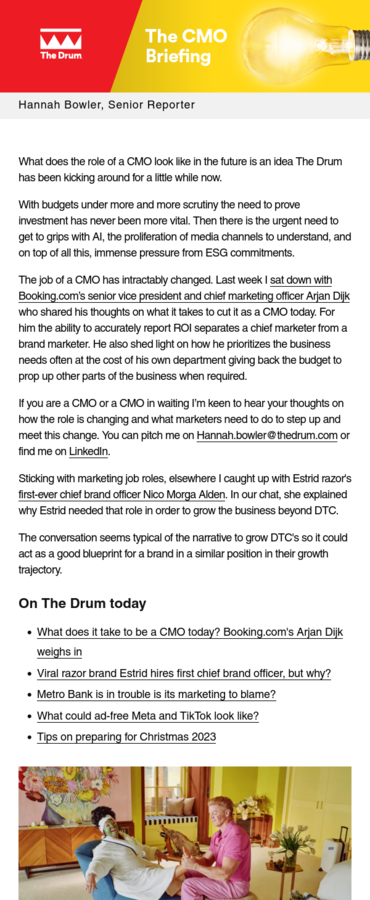This media agency won more work using traffic lights, B Corp and neuroscience
As part of our series looking at how agencies are reinventing their approach to new business, Total Media’s Pedro Martins explains how B Corp status and research expertise have helped it improve its win rate.

Total uses a ‘traffic light’ system to screen prospective clients / Unsplash
Receiving an invitation to provide credentials or to respond to an RFI from a brand isn’t just the start of the pitching process – it’s an opportunity for an agency to vet a potential client, too.
With pitching becoming more costly for businesses and more onerous for staff, more agencies are taking selective approaches to the clients they decide to compete for.
According to Pedro Martins, chief growth officer at indie media agency Total Media, there are many criteria to consider.
Advertisement
“Do we know their challenge? Can we solve the challenge? Is this something that we’ve got experience in? Do we have the resources and tools to look into it properly?”
He adds: “It’s also about the client: do we want to work with them? Do we feel they’d be responsive, or are they just looking at bottom lines?”
Some agencies will use a series of questions – a ‘flight check’ to decide whether or not a client is right for them, considering internal resources and the client’s specific demands. Total’s system, Martins explains, employs an Excel sheet that labels clients using a traffic light system. “Different criteria are weighted differently according to importance, and at the end, you get a green, orange or red score. If it’s green, that’s good; if it’s orange, we’ll look at what’s orange about it and understand that further.”
Advertisement
Total, a B Corp often uses the principles behind that accreditation to decide whether or not to pitch. “For us, sustainability and ESG is a priority. We wouldn’t look at something like Shell,” he says. “Many clients now that we’re working with tend to be B Corp. We’ll always try and look for that.”
Total has a research unit that typically provides clients with behavioral science insights that help direct media investments, explains Martins. In addition to the checklist approach, the agency frequently uses its expertise to conduct market research into a potential client. It stretches from simple SWOT analyses to focus group testing to examine how deep – and how relevant to media buying – a brand’s issues might run.
“We’ll get quantitative data; we’ll do qualitative research too if it’s an audience we need to understand more. We’ll have phone interviews with people or use some of our in-house tools – such as serving them propositions and seeing how they react. We might even plug them into our electrocardiogram (ECG) and measure how they feel about a proposition and a brand. All of that allows us to get an indication of how [audiences] feel,” he says.
Suggested newsletters for you
Martins, who is also co-chair of the Institute for Practitioners in Advertising’s (IPA) New Business Group, tells The Drum that since adopting a more stringent approach to new business, Total’s turned down almost a third of pitch requests – and won every account it’s actively decided to go up for.
It’s not a cheap means of deciding whether or not a client is suitable for Total, he admits. “I read a report that said the average pitch cost was £35,000. I think that’s way too low. You could easily spend that, in terms of hours, on the research.”
The process can take up to one-four weeks from the research team, he says – usually finishing up around the time the agency’s new business team is going through the chemistry stage of a pitch.
He says the company sometimes spends “10s of thousands” on client research before making a final decision. But Martins notes that the most minor account Total would take on would be worth around £1m, and the firm reserves those more heavyweight research methods for companies it’s already close to greenlighting. And, deciding without as much information as possible “would be just doing lip service.”
“We’ll throw our hat in the ring and see how we go on. But if you haven’t done the diligence properly, how can you understand whether there is something you can offer?”
As well as improving its win rate, Martins says that Total’s selective approach to new business means it’s not taking too much time away from the clients it already has. “It takes a lot of energy, effort and cost to win a business. We must ensure our clients are prioritized first, and then new business. If there are big projects, we’ll turn down new business.”


